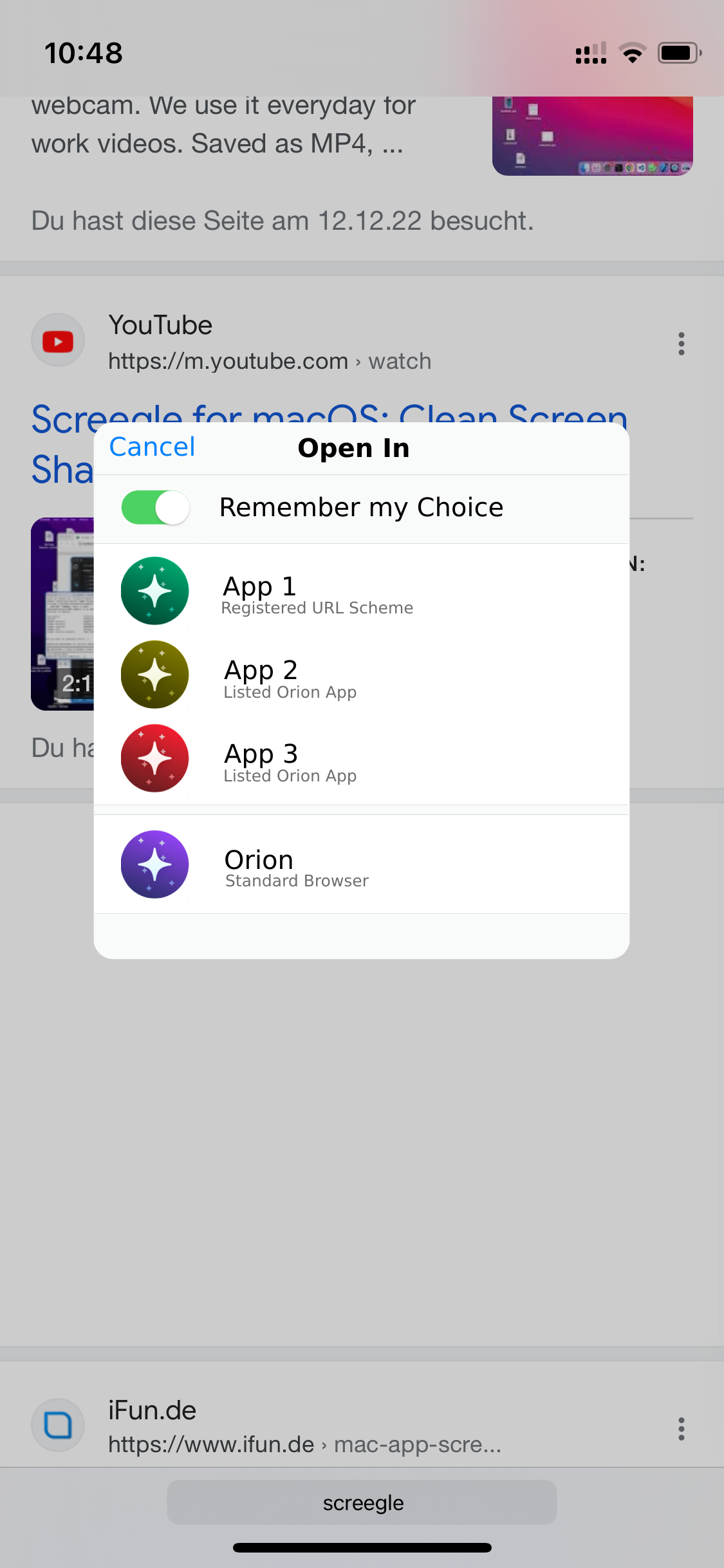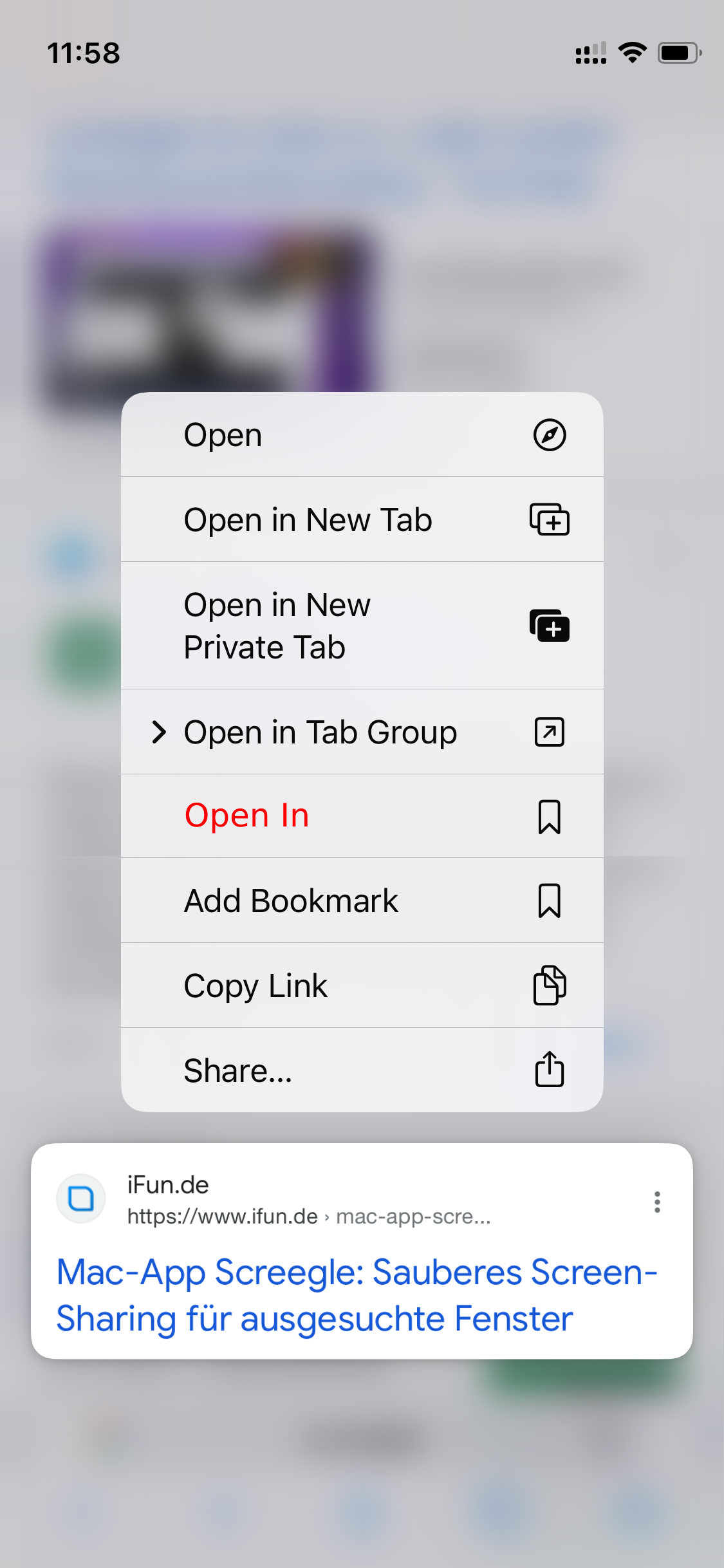Vlad So let me think...
This use case A combines the regular user and the power user in case there is a URL registered:
- Click on any link that has a registered URL scheme (as this indicates there is a dedicated app for this link).
- Orion pops up this user input; the user can select what he wants.
2a. Selecting if he wants his choice to be remembered.
2b. The app list holds first the registered app and follows the list of apps that can open such a link by link manipulation (e.g., change twitter:// to tweetbot:// - comes from the Orion-supported apps list).
2c. The Orion should show as a separate app that allows opening the link within the browser itself.

In case there is no registered URL scheme (use case B), but there is an app in the Orion-supported app list that would allow for link manipulation (e.g. twitter:// to tweetbot:// but twitter:// is not registered as the app is not installed):
- Follow use case A but don't show the Twitter app on top of the list.
On long press on a link, there should be "Open In" shown as an additional option (otherwise grayed out) to change the behavior if
- "Remember my Choice" was set previously as this allows you to change your preset.
- An app was installed that registered an URL scheme.
- Another app was listed on the Orion-supported apps list.

Additionally, universal links should be treated the same way as URL schemes. Universal links should lead to even better user experience and this is completely alright. However, it could become annoying to non-average users. This is where the above described UI/UX options are coming in. The user can freely decide if she/he would like to be a average user or not by simply selecting what she/he wants. The first app in the "Open In list" is mimicing the average user choice. Non-average users might be disturbed as universal links open external applications while in private browsing mode. We had this discussion over here: https://orionfeedback.org/d/3832-ask-user-to-open-link-in-associated-app-during-private-browsing/7
Here is more information about universal links:
It seems that universal links, the way service providers can tell which app can use their links, is exactly what the Orion-support app list is, just provided by the service providers themselves. The Orion-supported apps list adds freedom as the service providers prefer their apps to be used.
I would say that's it. I'm, of course, open to comments.